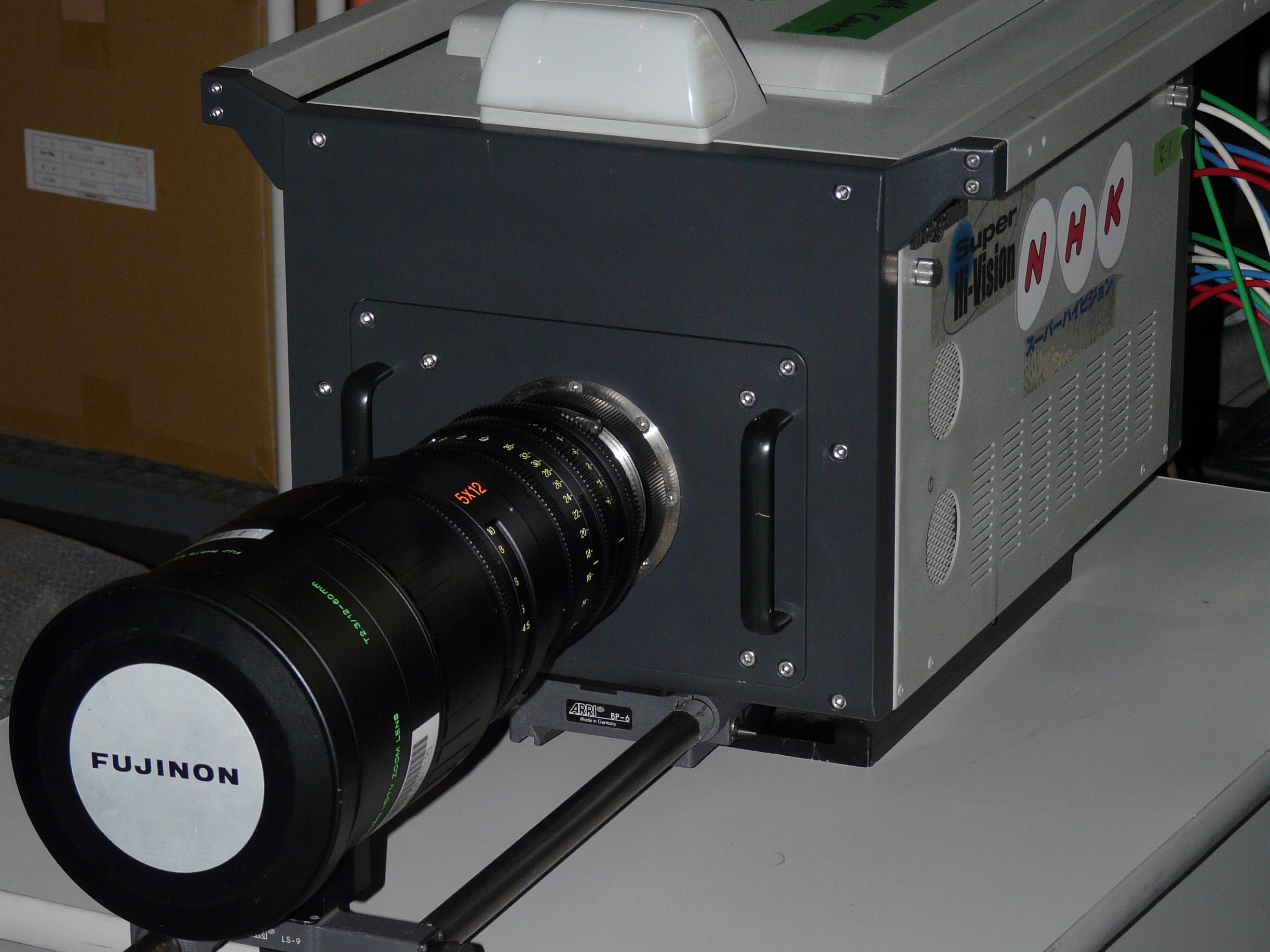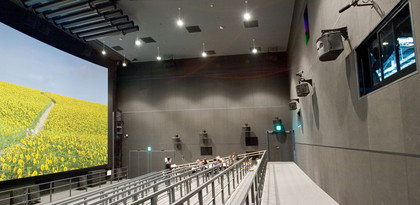BBC talks Super Hi-Vision plans for London 2012
"The closest thing to being there"

Forget 1080p. Forget Ultra HD. The opening and closing ceremonies will be among the events from the London 2012 Olympics to be filmed by cameras recording 16 times the detail of high definition, and broadcast live to four specially set-up Super Hi-Vision cinemas in the UK.
Lucky ticket holders in Bradford, London and Glasgow will witness a huge 7680x4320 pixel resolution picture on 400-inch cinema screens while being fully immersed by a 22.2 sound system.
The BBC, which recently confirmed its plans to shoot and screen the Olympic Games in 3D, will from June be using the BBC ticketing website to allow people to select a slot and get a free ticket.
"It will be the same as booking tickets to Strictly Come Dancing," says Tim Plyming, project executive, digital & editor live sites, BBC London 2012, who says that the BBC will doing some publicity for the events at the end of May.
"For families not able to get a ticket for the Olympic venues, this is the closest thing to being there. It will be a great experience to see it live, but we will also have it captured in perpetuity in Super Hi-Vision. "
Plyming, just back from spending a week filming an introductory film for the summer showcases with NHK - who developed Super Hi-Vision (also known as Ultra HD or 8K4K) and owns the only three cameras - told TechRadar all about the BBC's Olympic plans.
"We'll be in four venues and have three cameras out in the park. We'll have an outside broadcast truck that will move around. Most of the footage will be recorded and we'll put out edited highlights packages every day in order to get greater numbers of people to experience Super Hi-Vision," he said, confirming that Super Hi-Vision cameras will be filming from the Aquatics Centre, Velodrome and Basketball Arena among others. Exact details of the live broadcasts will be confirmed nearer the time.
Sign up for breaking news, reviews, opinion, top tech deals, and more.
There are three Super Hi-Vision cinemas open to the public during the games that will screen live and pre-recorded events on huge projection screens.
A 100-seat cinema is being created in one of the TV studios at BBC Scotland's HQ at Pacific Quay, Glasgow, with further upgraded installations at the National Media Museum in Bradford and in the Radio Theatre at the new Broadcasting House in central London.
A smaller, private Super Hi-Vision cinema using 'just' a 150-inch plasma monitor will be created within the International Broadcast Centre at the Olympic Park itself, though there will be no public access.

HIGHER DEF: Four temporary Super Hi-Vision cinemas will be created by the BBC for London 2012
The live Super Hi-Vision pictures will be streamed across the JANET research network, a 20 Gigabit high bandwidth IP network, taken to Washington via other academic networks, and be streamed to Tokyo and Osaka by NTT.
Super Hi-Vision, which has been trialled by the BBC before, is so detailed that it enables cameras to capture an entire sports field in one static shot.
For some events the camera won't be moved at all, giving viewers a real sense of being at the actual event. "Your eyes to do the editing," says Plyming.
Although this is 'next-gen' tech, Plyming thinks that its airing to UK audiences will speed-up its take-up worldwide. "When I show 3D to BBC producers, 50% like it, 50% aren't sure, but everyone that's seen Super Hi-Vision gets it and thinks it's amazing."
"Our focus is to get London sorted and there are no firm plans for afterwards," he says. "It's an incredibly far-off technology, but these screenings will mean much greater awareness of Super Hi-Vision. People will be really impressed, and owners of other events and other broadcasters will want to do their event in Super Hi-Vision, and will be approaching NHK. Lots of sports events will be captured, and it's then on a journey into the domestic environment - though that all depends on compression tech."
Japan's national broadcaster NHK is seeing London 2012 as a test for future events - and if Tokyo gets the 2020 Olympics (it's a candidate city alongside Madrid, Istanbul, Baku and Doha) there could already be a live domestic Super Hi-Vision TV channel in Japan. "NHK think 4K may be a staging post," says Plyming, "but they think 8K is where it's at - it's a massive priority for them."
Although it's largely a projection technology, Sharp showed-off a prototype 85-inch 8K-capable LCD panel at January's CES in Las Vegas.
Having broken the story of the BBC's Olympic plans for Super Hi-Vision four years ago and witnessed Super Hi-Vision in Japan, we can assure TechRadar readers of one thing: live sports broadcasts will never be the same again.

Jamie is a freelance tech, travel and space journalist based in the UK. He’s been writing regularly for Techradar since it was launched in 2008 and also writes regularly for Forbes, The Telegraph, the South China Morning Post, Sky & Telescope and the Sky At Night magazine as well as other Future titles T3, Digital Camera World, All About Space and Space.com. He also edits two of his own websites, TravGear.com and WhenIsTheNextEclipse.com that reflect his obsession with travel gear and solar eclipse travel. He is the author of A Stargazing Program For Beginners (Springer, 2015),